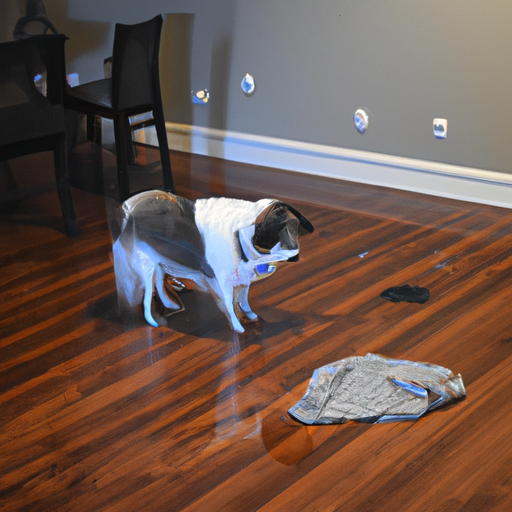Understanding the Issue
Let’s try to understand this issue from your dog’s perspective. Your dog has been perfectly house-trained and suddenly, they begin to pee in the house. This can be confusing and frustrating for you. But remember, it’s not about blaming them – it’s about understanding what’s happening.
There can be many underlying reasons for this sudden behaviour change. It could be medical, behavioural, or environmental. As a caregiver, it’s essential for you to identify the root cause and find a solution.
Potential Medical Reasons
First, let’s consider some potential medical explanations.
- Urinary tract infections (UTIs): These can make your dog feel an urgent need to urinate, even if they’ve just been outside.
- Diabetes or kidney disease: These conditions can cause excessive thirst, leading to increased urination.
- Old age: Aging can lead to decreased control over bladder and bowel functions.
| Medical Reason | Symptoms | Possible Solution |
|---|---|---|
| UTI | Frequent urination, discomfort while urinating | Visit a vet |
| Diabetes/Kidney disease | Excessive thirst, weight loss | Medical treatment |
| Old age | Decreased control over bladder | Regular bathroom breaks |
Behavioural and Environmental Causes
Sometimes, the cause is not medical, but behavioural or environmental. Here are some examples:
- Changes in the environment: Dogs are sensitive creatures. Changes like moving to a new house, a new family member, or even rearranging furniture can stress them out and lead to accidents.
- Lack of proper house training: If your dog has not been properly house-trained, they might not understand that they need to pee outside.
- Fear or anxiety: Loud noises like thunderstorms, fireworks, or construction works can make your dog anxious and lead to accidents.
How to Address the Issue
Now that we’ve identified potential causes, let’s talk about solutions.
- Visit a vet: If you suspect a medical issue, seek professional help immediately.
- Train or re-train: If it’s a training issue, you might need to go back to basics and re-train your dog.
- Address environmental changes: Try to minimize stress for your dog by introducing changes gradually.
Preventing Future Incidents
To prevent future accidents, consider these steps:
- Regular bathroom breaks: This is especially important for older dogs who might not have as much control over their bladder.
- Reward system: Reward your dog for peeing outside to reinforce this behaviour.
- Comforting environment: Try to make your dog feel safe, especially during potentially stressful situations.
Frequently Asked Questions
Q: Should I punish my dog for peeing in the house?
A: No, punishment can actually exacerbate the issue.
Q: How can I tell if my dog has a UTI?
A: Look for symptoms like frequent urination and discomfort while urinating.
Q: What can I do to help my older dog who can’t control their bladder?
A: Regular bathroom breaks and vet visits are key.
Remember, patience and understanding are key when dealing with these issues. Your dog isn’t trying to upset you – they’re just trying to communicate in the only way they know how.



